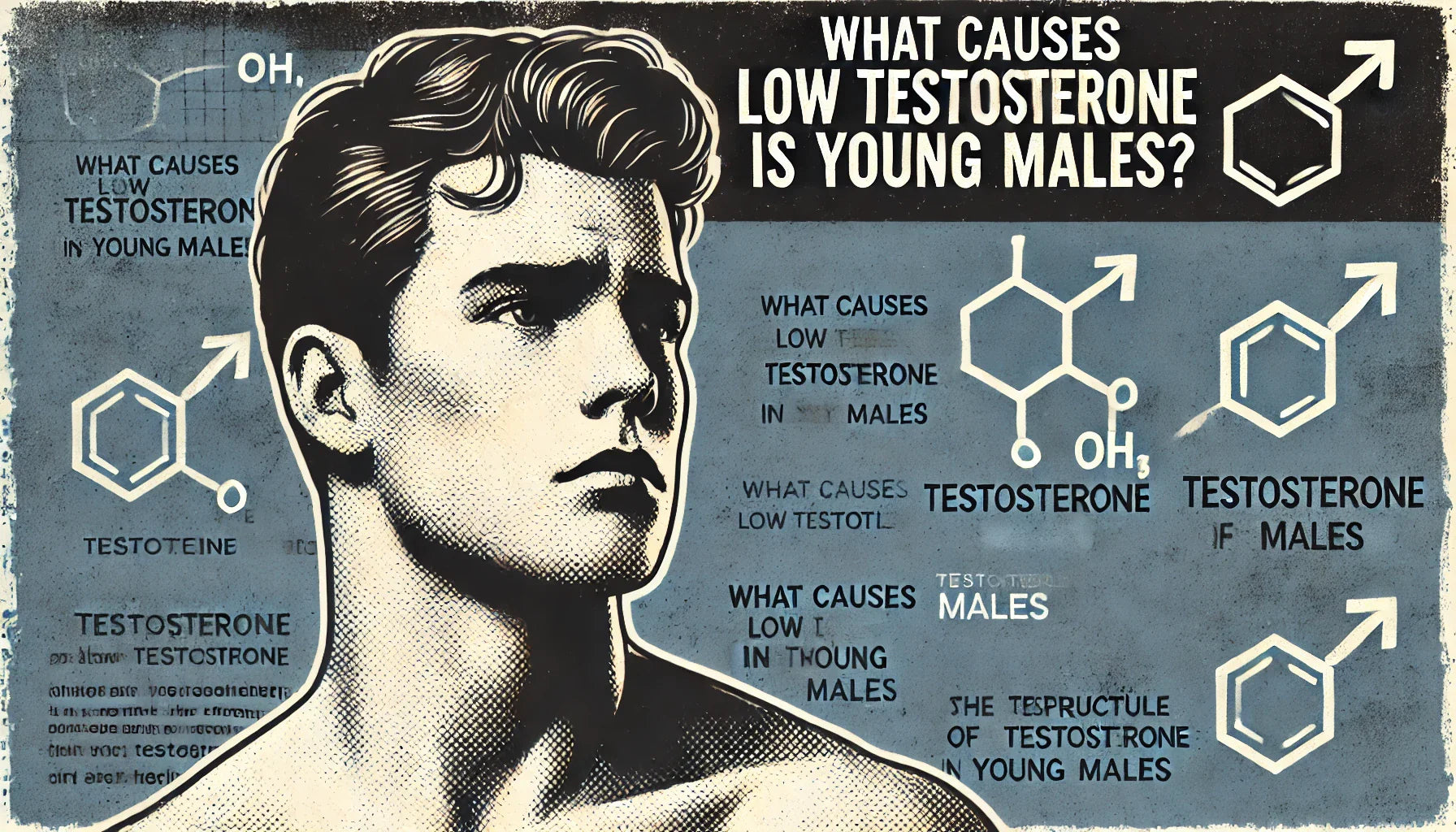
Understanding the Unexpected Causes of Low Testosterone in Young Men
Testosterone is often associated with strength, energy, and masculinity, which is what we often associate with young males, but what happens when levels drop at a young age? While it’s normal for testosterone to decline gradually with age, more young men today are experiencing low levels earlier in life, which is rather concerning. This can lead to fatigue, reduced muscle mass, low sex drive, mood swings, and even difficulty concentrating.
So, what’s behind this decline? And why is it getting worse as time goes on? In this blog, we’ll go over why young males are experiencing low Testosterone and what they can do to correct the problem. Let’s go!
Lifestyle Factors: Diet, Exercise, and Sleep
Your daily habits play a bigger role than you might think. Back in the day, fast food was less common, and most people ate at home with their families every day. The food was not ultra-processed or loaded with refined sugars. In today’s world, more people eat out than at home, and some foods are loaded with processed ingredients, dyes, and other chemicals. Though they may seem harmless at times, constant exposure to ultra-processed foods can disrupt your hormone levels, especially your testosterone levels.
What you need to focus on is making healthier choices and eating less processed foods. A diet rich in healthy fats, lean protein, and essential nutrients like zinc and vitamin D supports hormone production and, overall, will help you increase your testosterone levels.
Exercise is another important factor—strength training and high-intensity interval workouts (HIIT) have been shown to boost testosterone naturally, while a sedentary lifestyle can cause levels to drop. You need to focus on moving your muscles and strengthening your body to help boost testosterone.
Another important thing is sleep! Sleep is just as crucial in terms of boosting your testosterone levels. Testosterone production happens mostly during deep sleep, so poor sleep quality or chronic sleep deprivation can lead to lower levels, fatigue, and even mood changes. So, the first thing you’re going to want to do is focus on diet, exercise, and sleep.
Stress and Its Impact on Hormonal Balance
Stress has a direct effect on your body’s hormones, including testosterone. When you’re constantly stressed, your body releases high levels of cortisol, which is the body’s primary stress hormone. While cortisol is useful in short bursts, such as when writing a test or in a life-or-death situation, chronic stress that elevates your cortisol levels can suppress testosterone production. This leads to a hormonal imbalance with symptoms such as fatigue, low sex drive, mood swings, and even difficulty building muscle. Stress also makes it easier for us to make bad choices like unhealthy eating, drug or alcohol use, etc, all of which further lower testosterone levels. So, it’s really important to keep stress hormones as low as possible.
Medical Conditions And Medications That Affect Testosterone Levels
Certain medical conditions and medications can have a significant impact on testosterone levels, sometimes leading to a noticeable decline in energy, muscle mass, and overall energy.
Chronic Illnesses Known To Cause Low Testosterone
-
Obesity
-
Diabetes
-
Hypogonadism
-
Chronic Stress
-
Sleep Apnea & Poor Sleep
-
Pituitary Disorders
-
Testicular Injury or Surgery
-
Anabolic Steroid Abuse
-
kidney disease
-
liver disease
-
HIV/AIDS can lower testosterone.
-
Excessive Alcohol Consumption
-
Malnutrition or Nutrient Deficiencies
Medications Known To Cause Low Testosterone
-
Opioids (Painkillers)
-
Corticosteroids
-
Antidepressants
-
Anti-anxiety medications (Benzodiazepines)
-
Chemotherapy Drugs
-
Beta-Blockers
-
Statins (Cholesterol-Lowering Drugs)
-
Anti-Androgens
-
Proton Pump Inhibitors (PPIs)
-
Metformin (Diabetes Medication)
-
Antipsychotic Medications
If you're experiencing symptoms of low testosterone and take long-term medications or have underlying health conditions, it’s essential to consult your doctor for help.
Environmental Toxins and Endocrine Disruptors
Modern life exposes us to countless chemicals, and we may not even notice that they can interfere with hormone production, including testosterone. These substances, known as endocrine disruptors, are found in everyday items like plastics, pesticides, personal care products, and even the food we eat. Chemicals such as BPA (found in plastic containers), phthalates (in cosmetics and household items), and parabens (in shampoos and lotions) can mimic or block hormone function, and this leads to lower testosterone levels over time.
Another thing to watch out for is heavy metals like lead and mercury, often present in contaminated water or certain foods, can negatively impact the endocrine system. Long-term exposure to these toxins can disrupt the body's ability to produce and regulate testosterone. This can cause fatigue, low sex drive, and other symptoms of hormonal imbalance.
Overview
Now that you know what might be causing your levels to lower, it’s time to focus on boosting testosterone naturally so you can feel good again and get back to being you. Feel free to check out our latest blog on How to Naturally Increase Testosterone Levels for more insight into how to bring those hormones up.